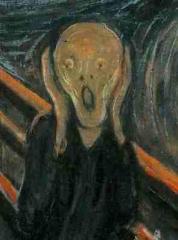This list comprises books, mostly novels, I’ve read that deal with the individual and his relationship to society and to the larger world. It’s in no particular order, as they came to mind. The theme of the individual in society is, of course, one of the principle themes of the novel. The novels in this list are mostly concerned with outsiders. They’re people who are in some way maintaining a personal vision or achieving a goal in the face of significant obstacles.
- Laxness, Halldor. Independent People. 1934-35. Icelandic. Nobel Prize, 1955.
- In early 20th Century Iceland, having worked 18 years as a shepherd to save money to buy his own freehold, Bjartur undertakes his life as an independent man.
- “… independence, what it means and what it is worth giving up in order to achieve it. Bjartur is a stubborn man, often callous to the point of cruelty in his refusal to swerve from his ideals. Though undoubtedly a principled man, his attitude leads to the death and alienation of those around him.” (Wikipedia)
- Hamsun, Knut. Growth of the Soil. Norwegian. 1917. Nobel Prize, 1920.
- Isak walks north into the Norwegian forest until he finds a place he likes, and stakes out a farm for himself.
- “Hamsun’s protagonists were often outcasts and vagabonds that opposed civilization, industrialization, and modernisation. These rootless individuals who distrusted organized society were a reflection of Hamsun himself. The novel … expresses back-to-nature, old-school philosophies, and peasant life.” (Wikipedia)
- Rolvaag, O.E. Giants in the Earth. 1924-25. Norwegian.
- ” … a Norwegian pioneer family’s struggles with the land and the elements of the Dakota Territory as they try to make a new life in America. … based partly upon Rolvaag’s personal experiences as a settler and as well of the experiences of his wife’s family … realistically treats the lives and trials of Norwegian pioneers in the Midwest, … also portrays the trials of loneliness, separation from family, longing for the old country and the difficulty of fitting into a new culture.” (Wikipedia)
- White, Patrick. The Tree of Man. 1955. Australian. Nobel Prize, 1973.
- “Stan Parker, with only a horse and a dog for company journeys to a remote patch of land he has inherited in the Australian hills. Once the land is cleared and a rudimentary house built, he brings his wife Amy to the wilderness.” (Amazon)
- Moberg, Vilhelm. The Emigrants. 1949. Swedish. Considered one of the great Swedish novelists of the 20th C.
- “… in the 1840s up to 1850 … the hardships faced by rural families in Sweden. Poor harvests lead to famine, a catalyst for the beginnings of emigration to the United States in search of a better life.” (Wikipedia)
- — Unto a Good Land. 1952. Swedish.
- The journey of the Emigrants from New York City to Taylor’s Falls, Minnesota. They settle at the lake Ki-Chi-Saga and start building their home.
- — The Settlers. 1956. Swedish.
- The emigrants’ new life in America where most of them now have started to feel at home.
- — The Last Letter Home. 1959. Swedish.
- The last years and deaths of the members of the emigrant families.
- Berry, Don. Trask. 1961. American.
- The mountain man flees civilization around Astoria, south to Tillamook Bay, and experiences spiritual awakening in the wilderness with the Indians there.
- — Moontrap. 1962. National Book Award nominee. Spur Award for Best Western Historical Novel, 1962.
- In the aftermath of the Whitman Massacre, former mountain man Johnson Monday deals with encroaching civilization and racial prejudice against his Indian wife in the Oregon City area.
- — To Build a Ship. 1963.
- Stranded settlers on Tillamook Bay build a ship in order to reach the outside world.
- “Don Berry explores the extent to which a man can betray himself and his morality for a dream or obsession.” (Amazon)
- Worsley, Frank. Shackleton’s Boat Journey. 1933. British.
- Ernest Shackleton and four men sail a 23-ft lifeboat 800 nautical miles (920 statute miles) across the Antarctic sea in winter, by dead reckoning under a cloudy sky, seeking a rescue party for the crew of the Endurance. Sometimes credited as the greatest ever feat of sailing.
- Lagerkvist, Par. Barabbas. 1950. Swedish. Nobel Prize, 1951.
- After Jesus is exchanged for him on the cross, the brigand Barabbas tries to understand why it happened.
- Doig, Ivan. This House of Sky. 1977. American. National Book Award Finalist.
- Memoir of Doig’s childhood in Montana in the 1940s and 1950s.
